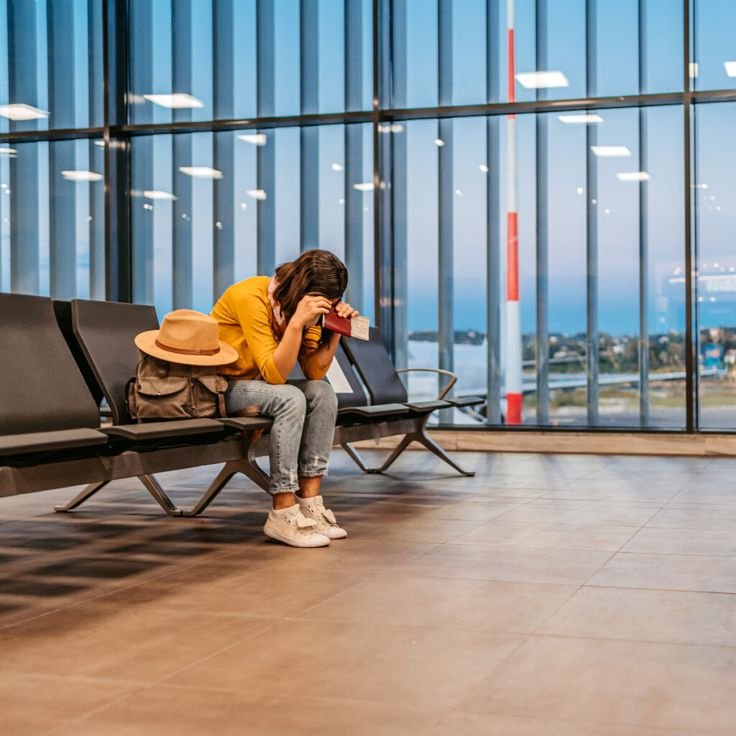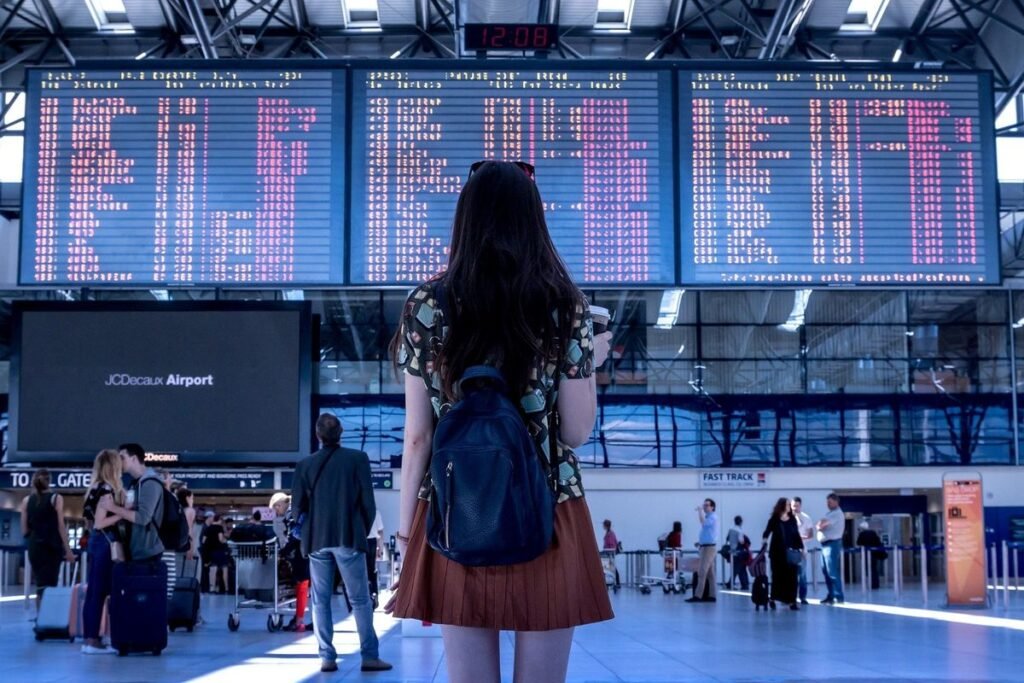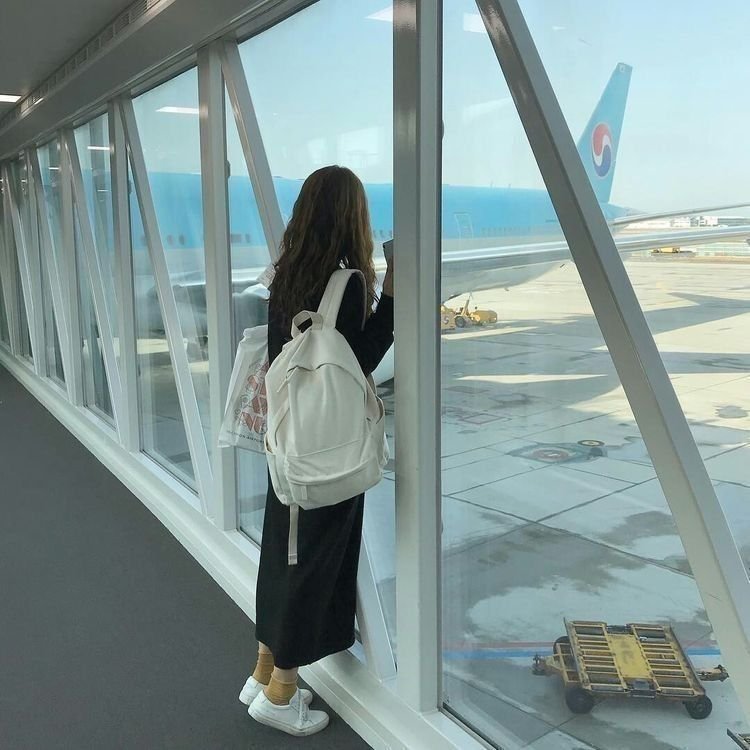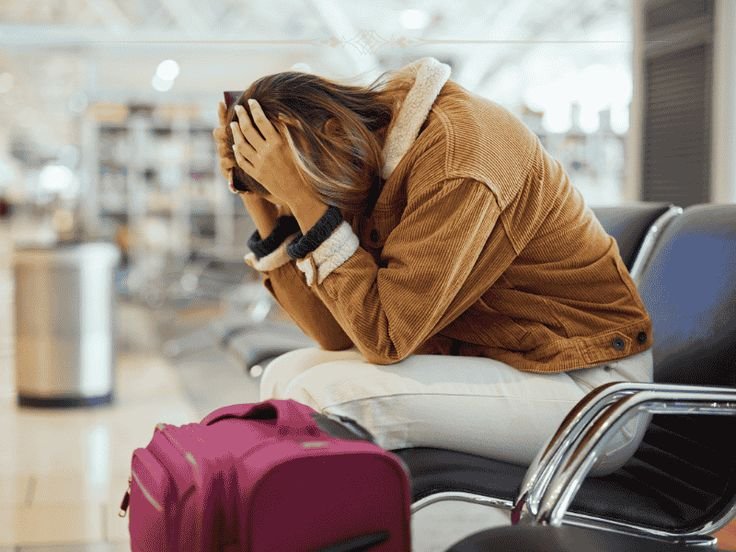Introduction
Traveling by air has become an integral part of modern life, connecting people across continents in a matter of hours. Yet, despite the advancements in aviation technology and global connectivity, one common issue still disrupts the travel experience—flight delays and cancellations. Few things are as frustrating for travelers as waiting at an airport only to discover that their Flight Delays is significantly delayed or, worse, canceled altogether.
This problem is not only inconvenient but can also lead to missed business meetings, ruined holiday plans, increased expenses, and emotional stress. Whether due to weather conditions, technical issues, staffing shortages, or global crises like pandemics, Flight Delays disruptions are a reality every traveler must face.
In this article, we’ll explore the causes of flight delays and cancellations, their impact on passengers, and—most importantly—practical strategies to cope with the situation and successfully replan your journey. By the end, you’ll feel empowered to handle such setbacks calmly and efficiently.

Causes of Flight Delays and Cancellations
Flight delays and cancellations can occur for a variety of reasons, often beyond the control of airlines or passengers. Weather conditions are one of the most common causes. Severe fog, heavy rain, snowstorms, or hurricanes make flying unsafe, forcing airlines to delay or cancel Flight Delays until conditions improve. Technical or mechanical issues with aircraft also contribute, as safety checks and repairs are prioritized over punctuality.
Another major factor is air traffic congestion, especially in busy international hubs where hundreds of Flight Delays operate daily. Delays in one Flight Delays can have a ripple effect, disrupting schedules worldwide. Crew availability also plays a critical role; regulations limit the number of hours pilots and Flight Delays attendants can work, so staffing shortages can ground flights unexpectedly.
Operational challenges like late incoming flights, baggage handling issues, or catering delays add to disruptions. At times, security concerns or heightened checks may cause unexpected stoppages. Finally, global crises—such as strikes, pandemics, or political tensions—can result in large-scale cancellations, leaving travelers stranded.
In short, Flight Delays disruptions arise from a mix of natural, technical, and human factors, highlighting the complexity of modern air travel.
To effectively deal with disruptions, it’s important to first understand why they occur. Some common causes include:
1. Weather Conditions
Bad weather is one of the most frequent culprits. Heavy fog, thunderstorms, snow, or hurricanes can make flying unsafe, forcing airlines to delay or cancel Flight Delays.
2. Technical Issues
Aircraft maintenance or unexpected mechanical problems can ground a Flight Delays. Safety always comes first, so even minor faults can lead to long delays.
3. Air Traffic Congestion
Airports in busy cities often experience congestion. With so many Flight Delays landing and taking off, delays sometimes become unavoidable.
4. Crew Availability
Strict rules govern how long pilots and Flight Delays attendants can work. If there’s a shortage of crew or they exceed their working hours, flights can be canceled or delayed.
5. Operational Challenges
Issues like late arrival of connecting flights, baggage loading problems, or catering delays also affect Flight Delays schedules.
6. Security Concerns
Extra security checks or suspicious activity can halt or delay Flight Delays unexpectedly.
7. Global Events
Pandemics, strikes, and geopolitical tensions have caused mass cancellations worldwide, showing how external events can impact air travel.

Impact on Passengers
Flight delays and cancellations don’t just affect schedules—they ripple into almost every aspect of a traveler’s experience.
- Financial Losses: Extra expenses for food, accommodation, or rebooking tickets.
- Missed Commitments: Business meetings, weddings, or connecting Flight Delays may be missed.
- Emotional Stress: Anxiety, frustration, and fatigue often accompany long waits.
- Uncertainty: Not knowing how long the delay will last can be mentally draining.
- Family Disruption: For families with kids, long waits can be particularly challenging.
Immediate Steps to Take During Delays and Cancellations
When you face a flight delay or cancellation, it’s easy to feel frustrated or lost. However, acting quickly and strategically can save both time and stress.
When faced with a delay or cancellation, here are practical steps to take right away:
1. Stay Calm and Gather Information
First, breathe. Then, check the airline’s app, website, or airport display boards for updates. Sometimes, staff at the gate may not have the latest details.Take a deep breath and check the official sources for updates—airline apps, airport display boards, or announcements at the gate. Relying on rumors or hearsay can lead to confusion.
2. Contact the Airline Immediately
Use the airline’s app, helpline, or even social media handles (Twitter is particularly effective) to rebook quickly. The faster you act, the more options you’ll have.Use multiple channels—airline counters, helplines, mobile apps, and even social media platforms like Twitter—to reach customer support. Often, travelers who act fastest secure the best rebooking options.
3. Know Your Rights
Depending on the country and airline, you may be entitled to compensation, refunds, or assistance such as food vouchers, hotel stays, or rebooking on the next available Flight Delays.
Depending on your location, you may be entitled to compensation, hotel stays, meals, or refunds. For instance, EU Regulation 261/2004 and India’s DGCA guidelines outline specific passenger rights. Understanding these can help you claim what you deserve.
- In the EU, Regulation 261/2004 provides strong passenger rights.
- In the US, airlines are required to rebook or refund passengers but compensation rules vary.
- In India, DGCA rules outline specific passenger rights for delays and cancellations.
4. Look for Alternative Routes
Check connecting Flight Delays via other airports or even consider trains, buses, or shared rides if feasible.Depending on your location, you may be entitled to compensation, hotel stays, meals, or refunds. For instance, EU Regulation 261/2004 and India’s DGCA guidelines outline specific passenger rights. Understanding these can help you claim what you deserve.
5. Use Travel Insurance
If you have insurance, delays and cancellations may cover hotel costs, meals, or even alternative Flight Delays bookings.If you have coverage, check your policy for compensation on hotel stays, meals, or rebookings. Filing a claim can reduce the financial burden of unexpected disruptions.
Replanning Your Journey
Once your Flight Delays has been delayed or canceled, the most important task is finding an alternative way to reach your destination. The faster you act, the better your chances of securing a convenient option.
Replanning is often the hardest part of a delay or cancellation. Here are steps to do it efficiently:
1. Explore Airline Options
Ask if the airline can place you on a partner airline or a different route at no additional cost.Head to the airline counter or use their mobile app to explore available rebooking options. Many airlines also allow passengers to rebook on a partner carrier at no additional cost. Don’t hesitate to ask if you can be rerouted through a different city.
2. Use Booking Platforms
Platforms like Expedia, Skyscanner, or Google Flight Delays can quickly show alternative routes. Sometimes buying a fresh ticket is faster than waiting.If the airline’s options are limited, turn to platforms like Google Flight Delays, Skyscanner, or Expedia. They display a wider range of routes and airlines. Sometimes purchasing a new ticket might be quicker than waiting for a long-delayed flight.
3. Leverage Loyalty Programs
If you’re a frequent flyer, use miles or elite status privileges to secure priority rebooking.Frequent flyer miles or elite status often provide priority rebooking, seat upgrades, or even lounge access. These perks can make the disruption more manageable.
4. Be Flexible
Adjust your destination or connecting route if possible. Sometimes reaching a nearby city and taking ground transport is faster.Flexibility is your best friend in these situations. Consider alternate airports, longer layovers, or mixed travel modes—such as flying into a nearby city and continuing by train, bus, or shared taxi.
5. Plan for Layovers
If you’re stuck overnight, make arrangements early. Airport hotels fill quickly during mass cancellations.If no immediate flight is available, secure accommodation early. Airport hotels fill up quickly during mass cancellations. Keep essentials in your carry-on to avoid stress while waiting.

Coping Strategies During Long Waits
Flight delays often mean spending long hours at airports, which can be stressful if you’re unprepared. However, with a few smart strategies, you can turn the wait into a more manageable experience.
Delays can mean hours of waiting at airports. Here’s how to stay comfortable:
- Stay Hydrated and Eat Wisely: Avoid heavy junk food; go for light meals and water.
- Charge Devices: Carry a power bank and use charging stations.
- Entertainment: Download movies, podcasts, or e-books in advance.
- Work on the Go: Many airports offer co-working lounges or Wi-Fi-enabled spaces.
- Health and Comfort: Stretch, walk around, and avoid sitting too long.
Start with the basics: stay nourished and hydrated. Carry snacks such as fruit, protein bars, or nuts, and drink water regularly to avoid fatigue. Limit alcohol and caffeine, which can worsen dehydration.
Next, keep your devices charged. A portable power bank ensures you’re not stranded without communication or entertainment. Speaking of entertainment, download e-books, podcasts, or shows in advance so the wait feels shorter.
Physical comfort is equally important. Walk around the terminal, stretch, or use airport seating areas designed for rest. Many airports also offer lounges, showers, or quiet zones—consider investing in a day pass for extra comfort.
Stay mentally relaxed by practicing mindfulness or breathing exercises. Even a few minutes of meditation can reduce frustration. Finally, don’t forget to stay connected with family, friends, or colleagues to update them on your situation.
By combining self-care, light activity, and purposeful use of time, long waits can shift from overwhelming to an opportunity for rest, reflection, or productivity.
Preventive Measures Before Traveling
While flight delays and cancellations can’t always be avoided, smart preparation reduces their impact. One of the best strategies is to book early morning flights, as they are less likely to be delayed than evening ones. Similarly, try to avoid tight connections—leave ample time between flights to cushion against schedule changes.
You can’t eliminate delays entirely, but you can minimize risks:
- Book Morning Flights: Morning flights are less likely to be delayed.
- Avoid Tight Connections: Leave enough time between connecting flights.
- Choose Reliable Airlines: Some airlines have better on-time performance records.
- Travel with Carry-On: If your luggage is with you, rebooking is much easier.
- Keep Essentials Handy: Medications, snacks, and chargers should always be in your carry-on.
- Stay Informed: Apps like FlightAware give real-time tracking of your flight.
Choosing reliable airlines and airports with good on-time records also lowers the risk of disruption. If possible, fly non-stop rather than connecting through busy hubs where delays are more common.
Packing smartly is another preventive step. Traveling with only carry-on luggage speeds up rebooking and avoids complications with delayed baggage. Keep essentials like medications, chargers, and a change of clothes in your hand luggage in case you’re stuck overnight.
Technology also helps. Use flight-tracking apps such as FlightAware or airline apps to get real-time updates. Signing up for travel insurance adds another layer of protection, covering unexpected costs if disruptions occur.
Lastly, always stay informed about policies and passenger rights in the regions you travel. Knowing what compensation or assistance you’re entitled to ensures you won’t be caught off guard.
Preparation doesn’t eliminate disruptions, but it makes you resilient when they occur.
Emotional Coping Mechanisms
Flight delays and cancellations are not just logistical problems—they also take a toll on your emotions. Stress, frustration, and uncertainty can quickly build up if you’re unprepared. Adopting the right mindset and emotional strategies can make the experience far easier to handle.
Start by practicing a mindset shift. Instead of focusing on the disruption, view the extra time as an opportunity to rest, read, or catch up on tasks you usually postpone. Accepting what you can’t control reduces unnecessary anxiety.
Flight disruptions test patience. Here’s how to keep your cool:
- Mindset Shift: Treat delays as extra time to relax, read, or reflect.
- Mindfulness Practices: Breathing exercises or meditation apps can reduce stress.
- Stay Social: Connect with fellow passengers; sometimes sharing the experience helps.
- Focus on Control: Don’t dwell on what you can’t control—act on what you can (finding alternatives, claiming compensation, etc.).
Mindfulness and relaxation techniques are powerful tools in crowded, noisy airports. Simple breathing exercises, guided meditation apps, or calming music can ease tension and restore balance.
Maintaining a sense of social connection also helps. Talk with fellow passengers, update family or friends, or share your experience online. Feeling supported reduces isolation and frustration.
Finally, focus on what you can control. Look for alternative routes, check airline updates, and claim any rights or compensation due to you. Taking action replaces helplessness with empowerment.
By combining mindfulness, positivity, and proactive problem-solving, you can protect your emotional well-being and turn an otherwise stressful disruption into a more manageable experience.
Case Studies: Learning from Real Travel Experiences
Case 1: Business Traveler in New York
A traveler missed his client meeting due to a storm delay. He quickly contacted the airline via the app, secured a flight 4 hours later, and conducted the meeting virtually while waiting at the airport. Proactive thinking saved the day.
Case 2: Family Vacation in Europe
A family’s connecting flight was canceled in Paris. The airline provided a hotel stay and meals. They turned the setback into an adventure, spending an unexpected night exploring the city.
Case 3: Student Returning Home
A student stranded during a strike used travel insurance to cover new tickets. Without insurance, costs would have been overwhelming.
The Role of Technology in Handling Disruptions
Technology has revolutionized how travelers cope with flight delays and cancellations. From real-time updates to instant rebooking, digital tools provide convenience, efficiency, and peace of mind during stressful situations.
- Airline Apps: Provide instant updates and rebooking options.
- Travel Insurance Apps: Easy claim processing during delays.
- Navigation Apps: Help explore alternative ground travel routes.
- AI Chatbots: Many airlines now use AI-powered assistants for quick support.
Airline Apps are often the first line of defense. They deliver live updates on flight status, gate changes, and delays, allowing travelers to act quickly. Many apps also enable passengers to rebook flights, select alternative routes, or even claim compensation without standing in long queues.
Flight Tracking Platforms like FlightAware or FlightRadar24 give detailed information about departures, arrivals, and air traffic conditions, helping passengers plan alternative routes in advance.
Travel Insurance Apps simplify filing claims for cancellations, delays, or missed connections. Digital submission and instant policy verification ensure quicker compensation and reduced financial stress.
AI Chatbots and Virtual Assistants are increasingly used by airlines to provide 24/7 support. These tools answer queries, help with rebooking, and guide passengers through airline policies efficiently.
Navigation and Ground Transport Apps complement air travel solutions. Apps for trains, buses, or ride-sharing services allow travelers to explore alternative transport options if flights are unavailable.
By leveraging these technological tools, travelers can stay informed, make timely decisions, and minimize the negative impact of delays or cancellations, making disruptions far more manageable.
Conclusion
Flight delays and cancellations are an inevitable part of air travel. While they can disrupt plans and create stress, how you respond makes all the difference. By staying calm, acting quickly, knowing your rights, and planning alternatives, you can transform a frustrating experience into a manageable one.
Preparation, flexibility, and a positive mindset are the keys to coping effectively. Remember—your journey may not always go as planned, but sometimes, detours bring unexpected opportunities and experiences.
So the next time you face a delay or cancellation, use these strategies, adapt with resilience, and keep your journey moving forward.
Related Post: 7 Top Causes of Google Maps Not Working and How to Fix Them

